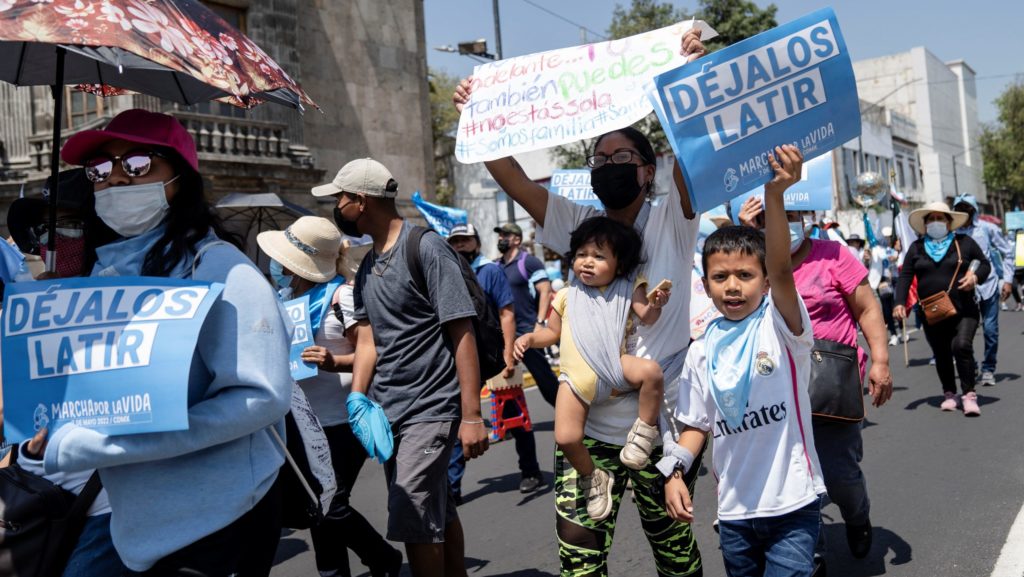The Mexican bishops' conference expressed deep concern over an initiative in the Mexico City assembly "which seeks to completely eliminate legal protection for life in gestation" and could lead to the further removal of limits on abortion across the country.
"This initiative, which seeks the total decriminalization of abortion in Mexico City, and which will probably be extended to other states in the Republic, would not only eliminate the current limit of twelve weeks of gestation, but would also open the door to the termination of pregnancy at any time," the bishops' said in a Nov. 6 statement signed by the conference president, Archbishop Rogelio Cabrera López of Monterrey, and its general secretary, Bishop Ramón Castro Castro of Cuernavaca.
"As pastors, we cannot remain silent in the face of a measure that, under the pretext of defending rights, in reality ignores the most fundamental human right: 'the right to life from conception to natural death,' and abandons women to decisions that can dramatically affect their lives," the statement said.
A pair of commissions in the Mexico City assembly voted Nov. 4 to eliminate abortion from the criminal code, along with any limits on how late an abortion could occur during pregnancy. Punishments of three to six months in prison or 100 to 300 days of community service for women who abort were also scrapped.
Mexico City, which became the first jurisdiction in Mexico to decriminalize abortion in 2007, previously allowed abortion only until the 12th week of pregnancy. In 2023, the Supreme Court effectively decriminalized abortion nationwide until the 12th week of pregnancy.
The removal of limits on abortion dealt another setback to Mexico’s pro-life movement, which has seen a series of court decisions and local legislatures remove restrictions on abortion over the past five years.
President Andrés Manuel López Obrador, who left office Sept. 30, didn’t promote abortion access during his time in office, saying there were more important issues such as poverty and corruption. But his Morena party has pushed decriminalization. Opposition parties, including the conservative National Action Party -- which opposed the Mexico City initiative -- have not doggedly championed the pro-life cause.
"The party that supposedly defended life began to question it," Alicia Galván, director of Patria Unida, a conservative think tank, told OSV News. "Among its militants and many local deputies in past legislatures, they hesitated and political coercion silenced them."
Mexico's bishops promised "to continue providing spiritual and material assistance to those who need it, and we extend our understanding, mercy and love to those who have experienced the tragedy of abortion."
They continued, "The right to life is not a matter of ideology, nor of simple political opinion. Human life, as described by the biological sciences, manifests a meaning and significance that no positive law can eliminate or change."

